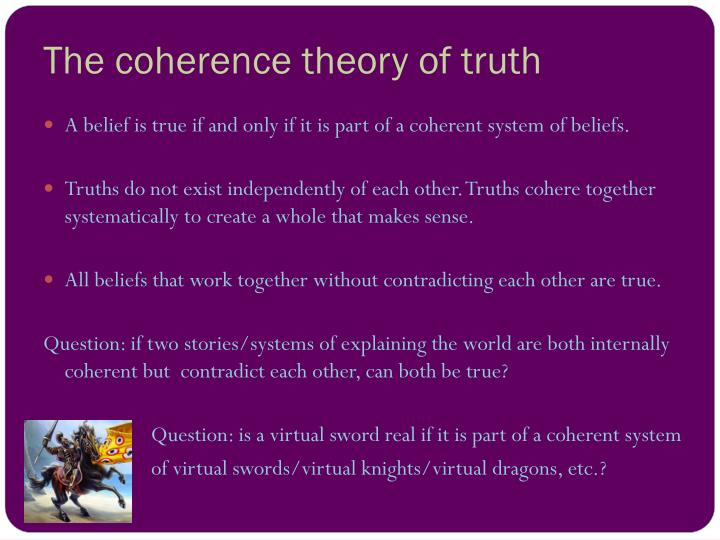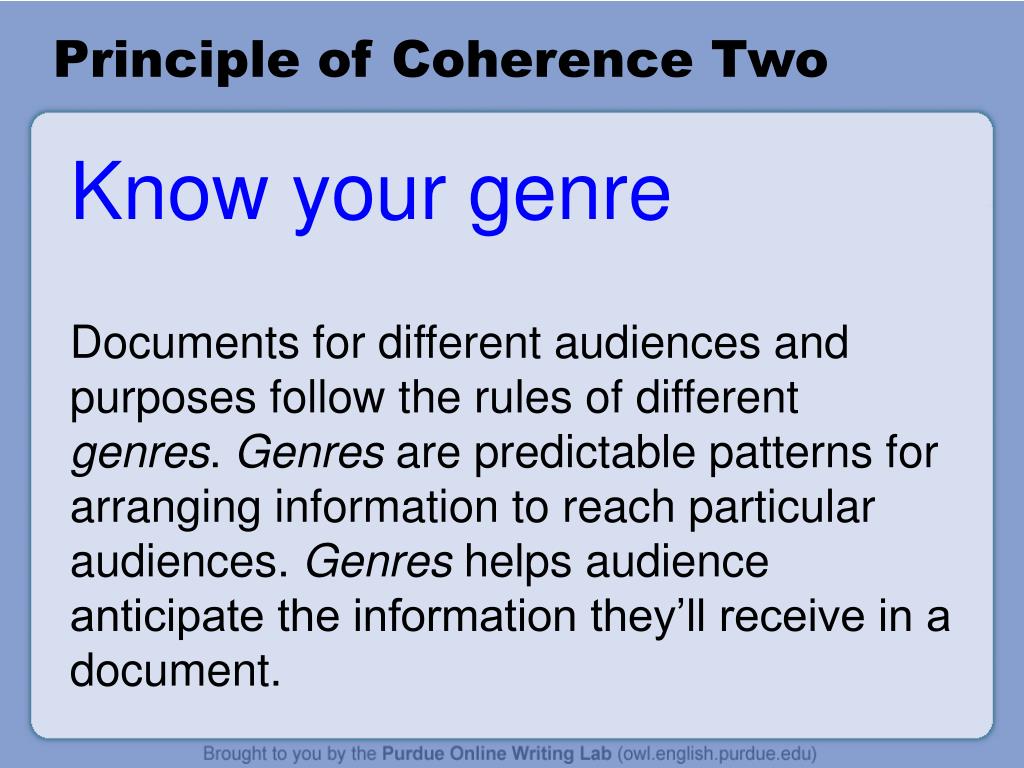

Their second article in the Journal of Constructivist Psychology,Įcker & Toomey provide a detailed study of correspondencesīetween known mechanisms of synaptic change in the brain and the Of Symptom-Producing Implicit Memory in Coherence Therapy ” In Subtitle: Constructivism, Coherence Psychology and their Neurodynamic
#Coherence theory series
Bridges, Eds., Paceįirst of a three-article series by Brian Toomey and Bruce Ecker on theīrain science supporting Coherence Therapy in the Journal of Constructivist Psychology. Therapy: Swift Change at the Core of Symptom Production” ThroughĪ close look at a session for a compulsive eating and weight problem, experientialĪnd neuropsychological descriptions of Coherence Therapy are providedīy Bruce Ecker & Laurel Hulley in this chapter from Studies in DownloadįAQ Reconsolidation FAQ This FAQ page addresses everything you ever wanted to clear up about how reconsolidation works and how the process now identified by neuroscientists for dispelling emotional conditioning through reconsolidation is the heart of the methodology of Coherence Therapy. A case example illustrates the art that implements the science. Read about how the steps of the process were first identified clinically in the development of Coherence Therapy in the early 1990s, and subsequently were discovered independently by neuroscientists using very different methods. This process allows a new learning to rewrite and erase the original one. After a breakthrough demonstration of reconsolidation was reported by neuroscientists in the research journal Nature, a related press release from the Coherence Psychology Institute began, "A process identified by psychotherapists in their therapy sessions, and subsequently discovered independently by neuroscientists in lab studies with animals, has now been used by neuroscientists to erase a fear reaction in human subjects." To read more, click here.Īrticle “The Brain's Rules for Change” The Jan-Feb 2010 issue of Psychotherapy Networker featured this article by Bruce Ecker on how therapists can utilize reconsolidation, the brain’s built-in process for actually deleting an unwanted emotional response learned earlier in life. Research Press Release: Psychotherapists and Neuroscientists Independently Discover. For the previous interview, which looks closely at how profound change of emotional and behavioral responses takes place, click Interview: Bruce Ecker on Reconsolidation and Coherence Therapy The Mental Help Net website's second interview of Bruce Ecker focuses on neuroscientists' breakthrough research on reconsolidation, with big implications for psychotherapy.
#Coherence theory full
For the full interview, including two Coherence Therapy case examples, click here. To see just a few excerpts from the full interview, click here. Saving Earth Britannica Presents Earth’s To-Do List for the 21st Century.Interview Is It Always About Attachment? No, it isn't, as Bruce Ecker explains to Psychotherapy Networker editor Rich Simon in this lively interview, and he paints a vivid picture of how therapists can determine accurately whether attachment issues underlie a given client's problem patterns.Britannica Beyond We’ve created a new place where questions are at the center of learning.100 Women Britannica celebrates the centennial of the Nineteenth Amendment, highlighting suffragists and history-making politicians.

#Coherence theory how to
COVID-19 Portal While this global health crisis continues to evolve, it can be useful to look to past pandemics to better understand how to respond today.Student Portal Britannica is the ultimate student resource for key school subjects like history, government, literature, and more.From tech to household and wellness products. Britannica Explains In these videos, Britannica explains a variety of topics and answers frequently asked questions.This Time in History In these videos, find out what happened this month (or any month!) in history.#WTFact Videos In #WTFact Britannica shares some of the most bizarre facts we can find.Demystified Videos In Demystified, Britannica has all the answers to your burning questions.Britannica Classics Check out these retro videos from Encyclopedia Britannica’s archives.


 0 kommentar(er)
0 kommentar(er)
